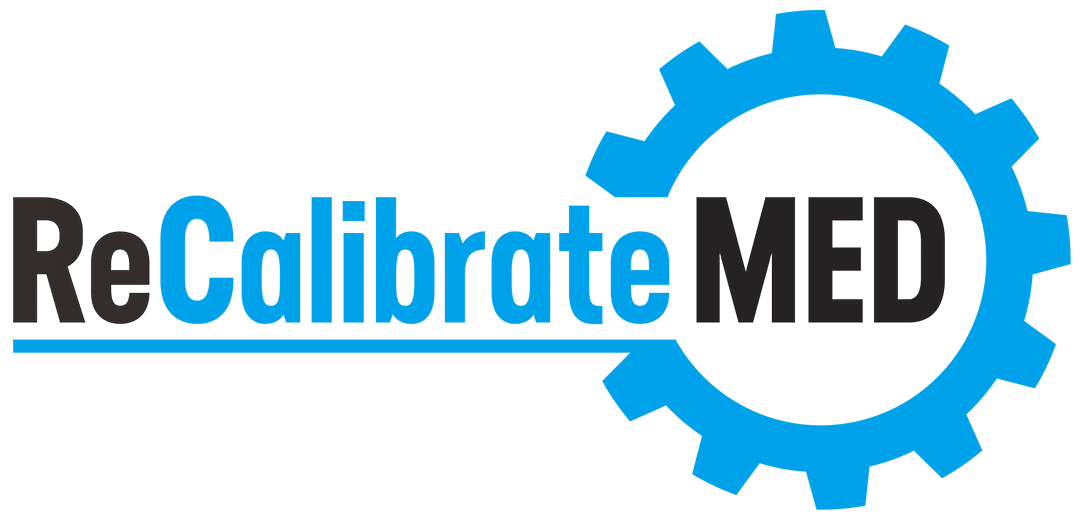Hormone therapy has long been associated with transitioning gender, leading to common stereotypes and misconceptions. It’s important to address these misconceptions to foster a better understanding of hormone therapy’s potential for both genders.
One common misconception is that hormone therapy is only for transgender individuals. While hormone therapy is indeed an important part of gender transition, it has the potential to offer benefits to cisgender individuals as well. This misconception often leads to limited access to hormone therapy for individuals who could benefit from it.
Another stereotype is that hormone therapy is solely focused on feminization or masculinization. While hormone therapy does involve the use of hormones typically associated with female or male characteristics, its applications extend far beyond gender transition. Hormones have a profound impact on various bodily functions, and hormone therapy can be utilized to address a wide range of health concerns.
It is important to challenge these stereotypes and misconceptions to pave the way for a more inclusive and comprehensive understanding of hormone therapy. By recognizing its potential for both genders, we can ensure that individuals receive the personalized care they deserve.
The benefits of hormone therapy for both genders
Hormone therapy offers a range of benefits for both genders, addressing various health concerns and improving overall well-being. Let’s explore some of these benefits:
- Osteoporosis treatment in men: Osteoporosis is commonly associated with women, but men can also develop this condition. Hormone therapy, specifically testosterone replacement therapy, has shown promising results in increasing bone density and reducing the risk of fractures in men with osteoporosis.
- Menopausal symptom management in women: Hormone therapy has been widely used to alleviate menopausal symptoms in women. By replenishing estrogen and progesterone levels through hormone replacement therapy (HRT), women can experience relief from hot flashes, night sweats, mood swings, and other menopausal symptoms.
- Treatment of hormonal imbalances: Both men and women can experience hormonal imbalances, leading to various health issues. Hormone therapy can help restore hormonal balance and alleviate symptoms such as fatigue, weight gain, mood swings, and low libido.
- Improved sexual health: Hormone therapy can enhance sexual health for both genders. For men, testosterone replacement therapy can improve erectile function, libido, and overall sexual satisfaction. For women, estrogen therapy can alleviate vaginal dryness, improve lubrication, and enhance sexual pleasure.
These are just a few examples of the potential benefits hormone therapy can offer to both genders. By recognizing and exploring these benefits, we can open up new possibilities for personalized healthcare.
Hormone therapy options for transgender individuals
Hormone therapy plays a crucial role in the gender transition process for transgender individuals. It involves the use of hormones to align the individual’s physical characteristics with their gender identity. Let’s explore the hormone therapy options available for transgender individuals:
- Feminizing hormone therapy: Transgender women often undergo feminizing hormone therapy, which involves the use of estrogen and anti-androgens. Estrogen promotes breast development, redistributes body fat, and softens the skin. Anti-androgens block the effects of testosterone, leading to decreased body and facial hair growth.
- Masculinizing hormone therapy: Transgender men undergo masculinizing hormone therapy, which typically involves the use of testosterone. Testosterone promotes the development of facial hair, deepens the voice, increases muscle mass, and redistributes body fat to a more masculine pattern.
It’s important to note that hormone therapy for transgender individuals is a highly individualized process. Dosages and treatment plans are tailored to each person’s specific needs and goals, overseen by qualified healthcare professionals experienced in transgender healthcare.
Hormone therapy for cisgender individuals
While hormone therapy is often associated with transgender healthcare, cisgender individuals can also benefit from hormone therapy for a range of health concerns. Let’s explore some of the applications of hormone therapy for cisgender individuals:
- Hormone replacement therapy (HRT) for menopause: Menopause is a natural stage in a woman’s life that involves a decline in estrogen and progesterone levels. Hormone replacement therapy can help manage menopausal symptoms and reduce the risk of conditions such as osteoporosis and heart disease.
- Testosterone replacement therapy (TRT) for hypogonadism: Hypogonadism is a condition where the body produces insufficient testosterone. Testosterone replacement therapy can be used to increase testosterone levels, alleviating symptoms such as fatigue, low libido, and mood changes.
- Treatment of hormonal imbalances: Hormonal imbalances can occur in both men and women, leading to various health issues. Hormone therapy can be utilized to restore hormonal balance and alleviate symptoms such as fatigue, weight gain, mood swings, and low libido.
It’s important for cisgender individuals to have access to hormone therapy when it is medically necessary. By recognizing the potential benefits of hormone therapy beyond gender transition, we can ensure that all individuals receive the personalized care they need.
Potential risks and side effects of hormone therapy
Like any medical treatment, hormone therapy carries potential risks and side effects. It’s important to be aware of these risks and discuss them with a healthcare professional before starting hormone therapy. Let’s explore some of the potential risks and side effects:
- Blood clots: Hormone therapy, particularly estrogen therapy, can increase the risk of blood clots. This risk is higher for individuals with a history of blood clots or certain medical conditions. Regular monitoring and appropriate dosage adjustments can help mitigate this risk.
- Cardiovascular health: Hormone therapy, especially in older individuals, may have implications for cardiovascular health. Estrogen therapy, for example, may increase the risk of heart disease and stroke. Close monitoring and individualized treatment plans can help minimize these risks.
- Breast and prostate health: Hormone therapy can impact breast and prostate health. For transgender women, feminizing hormone therapy may increase the risk of breast cancer. For cisgender men, testosterone replacement therapy may increase the risk of prostate enlargement or prostate cancer. Regular screenings and monitoring are essential for early detection and prevention.
- Mental health: Hormone therapy can have an impact on mental health, both positive and negative. Some individuals may experience mood swings, anxiety, or depression as a result of hormone therapy. Close communication with healthcare professionals and mental health support are crucial for managing these effects.
It’s important to note that the potential risks and side effects of hormone therapy vary depending on the individual, their medical history, and the specific hormones and dosages used. Regular monitoring and open communication with healthcare professionals are essential for minimizing risks and optimizing the benefits of hormone therapy.
The importance of personalized hormone therapy plans
Personalized hormone therapy plans are crucial for ensuring optimal results and minimizing risks. Each individual’s hormone therapy journey is unique, and treatment plans should be tailored to their specific needs, goals, and medical history.
A comprehensive evaluation, including a thorough medical history, physical examination, and hormone level testing, is essential before initiating hormone therapy. This evaluation helps healthcare professionals determine the appropriate hormones, dosages, and monitoring schedule for each individual.
Regular monitoring is vital throughout the hormone therapy process. Hormone levels, blood pressure, cholesterol levels, and other relevant health markers should be monitored to ensure the therapy is effective and safe. Adjustments to dosages and treatment plans may be necessary based on these results.
Open communication between individuals and healthcare professionals is key to successful hormone therapy. Individuals should feel comfortable discussing their goals, concerns, and any changes they experience during hormone therapy. This ongoing dialogue helps healthcare professionals make informed decisions and provide the necessary support throughout the process.
By embracing personalized hormone therapy plans, we can ensure that individuals receive the care they need while minimizing risks and optimizing outcomes.
Hormone therapy and mental health
Hormones play a significant role in our mental health and well-being. Hormone therapy can have both positive and negative effects on mental health, depending on the individual and their specific hormone therapy plan.
For transgender individuals, hormone therapy often leads to improved mental well-being and quality of life. Aligning physical characteristics with gender identity can alleviate gender dysphoria and improve overall mental health.
However, hormone therapy can also impact mood and emotions. Some individuals may experience mood swings, anxiety, or depression as a result of hormone therapy. It’s important for healthcare professionals to closely monitor mental health during hormone therapy and provide appropriate support and resources when needed.
Additionally, hormone therapy can have positive effects on mental health for cisgender individuals as well. Hormonal imbalances can contribute to mood swings, anxiety, and depression. By restoring hormonal balance through hormone therapy, individuals may experience improvements in their mental well-being.
It’s crucial to recognize the interconnectedness of hormones and mental health and take a holistic approach to healthcare. By addressing both the physical and mental aspects, hormone therapy can contribute to overall well-being.
Research and advancements in hormone therapy
Research and advancements in hormone therapy are continuously expanding our understanding of its potential for both genders. Ongoing studies are uncovering new applications and optimizing treatment protocols. Let’s explore some of the recent research and advancements:
- Precision medicine: Advances in genetics and personalized medicine are shaping the future of hormone therapy. Genetic testing can provide valuable insights into an individual’s unique hormone metabolism, allowing for more targeted and effective treatment plans.
- Alternative delivery methods: Traditional hormone therapy often involves oral medications or injections. However, advancements in transdermal patches, gels, and subcutaneous implants offer alternative delivery methods that may improve convenience and absorption rates.
- Long-term effects: Long-term studies on the effects of hormone therapy are essential for understanding its potential risks and benefits. Research is ongoing to assess the long-term cardiovascular, metabolic, and cancer-related effects of hormone therapy in both transgender and cisgender individuals.
- Hormone therapy for non-binary individuals: Non-binary individuals, who do not identify exclusively as male or female, have unique healthcare needs. Ongoing research aims to better understand the potential benefits and challenges of hormone therapy for non-binary individuals.
These advancements and ongoing research highlight the dynamic nature of hormone therapy and the potential for further breakthroughs. By staying informed and supporting research efforts, we can contribute to the evolution of hormone therapy and its applications for all individuals.
Conclusion
Hormone therapy is not limited to specific gender-related conditions or stereotypes. Its potential extends to a wide range of health concerns for both genders. By challenging common misconceptions and embracing personalized healthcare, we can unlock the full potential of hormone therapy. Whether it’s alleviating menopausal symptoms, addressing hormonal imbalances, or supporting gender transition, hormone therapy offers a powerful tool for improving overall well-being. Let’s continue to explore, support research, and advocate for inclusive and innovative approaches to healthcare. Together, we can break stereotypes and pave the way for a more inclusive and empowered future. Call us today at (910) 420-0443.





